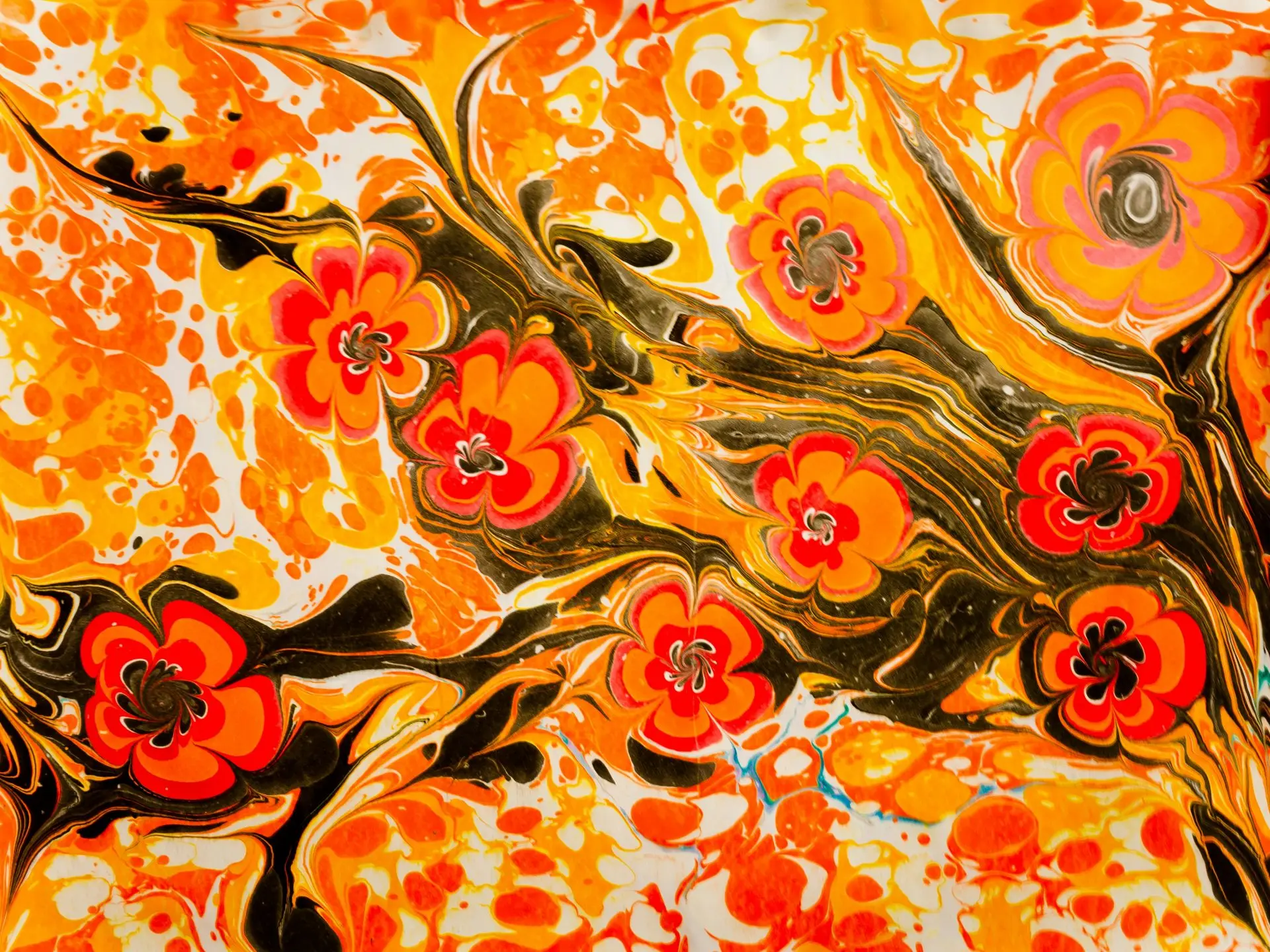Taoism Explained: Finding Inner Peace

Looking for more amazing products? Check out our online store and explore our collection here! Happy shopping!
Before diving in, please note: This post is for informational purposes only. If you’d like to know more about how we approach topics, feel free to check out our friendly Disclaimer Page.
Hey there, amazing readers! 
We’re committed to delivering quality posts, and your support (even just sticking around despite the ads) means everything to us. So, bear with us, and thanks for helping us keep the good vibes rolling. Now, on to the fun stuff!
TRANSLATE BUTTON AT THE END OF THE ARTICLE
Introduction to Taoism
Taoism, also known as Daoism, is an ancient Chinese philosophical and religious tradition that dates back over 2,500 years.
It is based on the teachings of Laozi, an influential Chinese philosopher, and the Tao Te Ching, a fundamental Taoist text.
Taoism emphasizes living in harmony with the Tao, which translates to “the way” or “the path.” The ultimate goal of Taoism is to achieve inner peace, balance, and harmony with oneself and the world around us.
Origins and History of Taoism
Taoism originated in China during the Zhou Dynasty in the 6th century BCE.
The foundational text of Taoism, the Tao Te Ching, is traditionally attributed to Laozi, a sage and philosopher who is believed to have lived around the same time as Confucius.
Over the centuries, Taoism has evolved and branched out into various sects and schools, each with its own interpretations and practices.
Taoist temples and monasteries can be found throughout China and other parts of Asia, where followers practice rituals, meditation, and other spiritual exercises.
Taoist Beliefs and Principles
Taoism is centered around several key beliefs and principles, including:
The Tao: The ultimate reality and source of all existence, often described as ineffable and beyond human comprehension.
Wu Wei: The concept of effortless action, non-action, or “going with the flow” to achieve harmony and balance.
Yin and Yang: The dualistic nature of the universe, representing opposing forces that are interconnected and interdependent.
Immortality: Taoists seek to attain immortality through spiritual practices and alchemy, aiming to transcend the cycle of birth and death.
The Concept of Yin and Yang
One of the central concepts in Taoism is the idea of Yin and Yang, representing the dualistic nature of the universe.
Yin is associated with darkness, passivity, and femininity, while Yang is associated with light, activity, and masculinity.
Together, Yin and Yang symbolize the balance and harmony of opposites in nature and in life.
Taoists believe that by embracing these opposing forces and finding equilibrium between them, one can achieve inner peace and fulfillment.
Taoist Practices for Inner Peace
Taoism offers a variety of practices and techniques to help individuals cultivate inner peace and harmony, including:
Meditation: Taoist meditation focuses on quieting the mind, cultivating mindfulness, and connecting with the Tao.
Qi Gong: A form of energy work that combines movement, breathing exercises, and meditation to promote health and vitality.
Tai Chi: A martial art that emphasizes slow, deliberate movements and deep breathing to promote relaxation and balance.
Rituals and ceremonies: Taoists engage in various rituals and ceremonies to honor deities, ancestors, and nature spirits, and to cultivate spiritual connections.
Finding Balance in Taoism
Finding balance is a central theme in Taoism, as it emphasizes the importance of harmony and moderation in all aspects of life.
Taoists seek to find a middle way between extremes, avoiding excess and deficiency in thoughts, actions, and emotions.
By finding balance and alignment with the Tao, individuals can experience greater peace, clarity, and well-being.
Taoist Meditation Techniques
Taoist meditation is a contemplative practice that aims to quiet the mind, cultivate inner stillness, and connect with the Tao.
Some common Taoist meditation techniques include:
Sitting meditation: Practicing seated meditation to focus the mind and cultivate mindfulness.
Walking meditation: Engaging in mindful walking to deepen awareness and connect with nature.
Breathwork: Using breathing exercises to calm the mind, regulate energy flow, and enhance vitality.
Visualization: Employing imagery and visualization techniques to focus the mind and cultivate inner peace.
The Importance of Nature in Taoism
Nature plays a significant role in Taoism, as it is seen as a reflection of the Tao and a source of wisdom and inspiration.
Taoists believe that by aligning with the rhythms of nature and observing its cycles, one can gain insights into life, death, and the interconnectedness of all beings.
Spending time in nature, practicing mindfulness, and cultivating a deep connection with the natural world are essential aspects of Taoist practice.
Taoist Philosophy on Life and Death
Taoism views life and death as part of a continuous cycle of existence, where birth and death are natural transitions that are interconnected and inevitable.
Taoists believe in the immortality of the soul and seek to transcend the limitations of the physical body through spiritual practices and self-cultivation.
Death is seen not as an end but as a transformation, a return to the Tao, and a continuation of the eternal cycle of life.
Taoism and Traditional Chinese Medicine
Taoism has had a profound influence on traditional Chinese medicine, which emphasizes the holistic approach to health and well-being.
Taoist principles such as Yin and Yang, Qi (vital energy), and the Five Elements are central concepts in Chinese medicine theory.
Practitioners of traditional Chinese medicine use acupuncture, herbal medicine, Qi Gong, and other techniques to balance the body’s energy, promote healing, and prevent illness.
Taoist Masters and Influential Figures
Throughout history, Taoism has been shaped by numerous masters and influential figures who have made significant contributions to the tradition.
Some of the most renowned Taoist masters include:
Laozi: The legendary founder of Taoism and author of the Tao Te Ching.
Zhuangzi: A Daoist philosopher and author of the Zhuangzi, a classic text of Taoist wisdom.
Zhang Daoling: The founder of the Celestial Masters sect of Taoism, which emphasized ritual practices and spiritual cultivation.
Wang Chongyang: The founder of the Quanzhen School of Taoism, which focused on internal alchemy and self-realization.
Applying Taoist Principles in Modern Life
In today’s fast-paced and hectic world, many people are turning to Taoism to find inner peace, balance, and spiritual fulfillment.
By incorporating Taoist principles and practices into daily life, individuals can cultivate mindfulness, reduce stress, and enhance overall well-being.
Some ways to apply Taoist principles in modern life include:
Practicing mindfulness and meditation to quiet the mind and reduce anxiety.
Embracing simplicity and minimalism to create a sense of space and clarity.
Cultivating a deep connection with nature by spending time outdoors and appreciating the beauty of the natural world.
Seeking balance and harmony in work, relationships, and daily activities to promote emotional and mental well-being.
Conclusion
Taoism offers a profound and timeless wisdom that can help individuals find inner peace, balance, and harmony in a chaotic world.
By embracing the principles of the Tao, cultivating mindfulness, and connecting with nature, we can live more authentically, joyfully, and purposefully.
Whether through meditation, Qi Gong, or simply observing the cycles of nature, Taoism provides a path to self-discovery, transformation, and spiritual enlightenment.
As we strive to live in harmony with the Tao, may we find peace within ourselves and the world around us.

The Enlightenment Journey is a remarkable collection of writings authored by a distinguished group of experts in the fields of spirituality, new age, and esoteric knowledge.
This anthology features a diverse assembly of well-experienced authors who bring their profound insights and credible perspectives to the forefront.
Each contributor possesses a wealth of knowledge and wisdom, making them authorities in their respective domains.
Together, they offer readers a transformative journey into the realms of spiritual growth, self-discovery, and esoteric enlightenment.
The Enlightenment Journey is a testament to the collective expertise of these luminaries, providing readers with a rich tapestry of ideas and information to illuminate their spiritual path.
Our Diverse Expertise
While our primary focus is on spirituality and esotericism, we are equally passionate about exploring a wide range of other topics and niches 

To ensure we provide the most accurate and valuable insights, we collaborate with trusted experts in their respective domains 
Our blog originally focused on spirituality and metaphysics, but we’ve since expanded to cover a wide range of niches. Don’t worry—we continue to publish a lot of articles on spirituality! Frequently visit our blog to explore our diverse content and stay tuned for more insightful reads.
Hey there, amazing reader! 
Check out our store here and take a peek at some of our featured products below! Thanks for being awesome!











